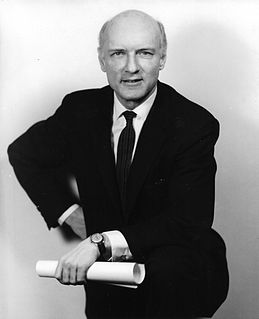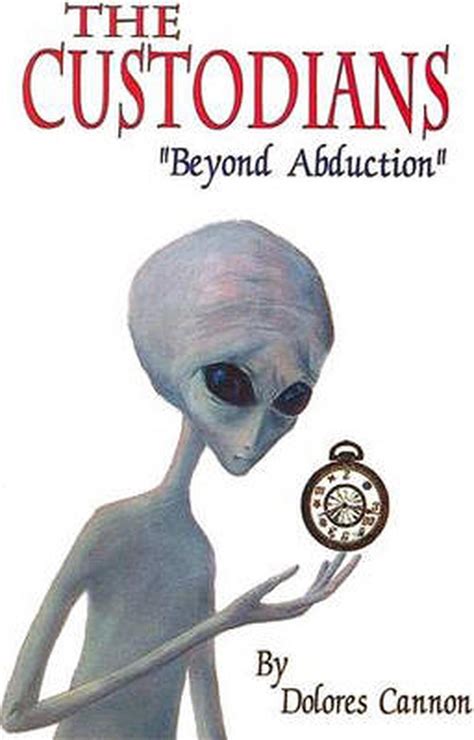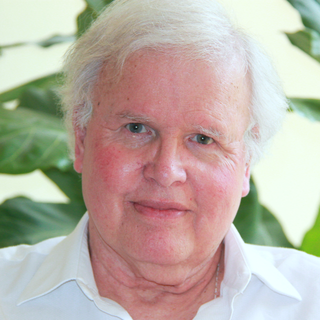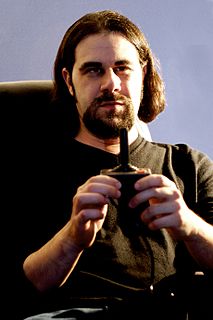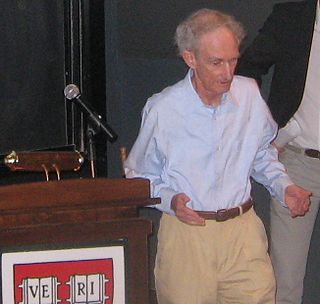Top 1200 Systems Thinking Quotes & Sayings - Page 4
Explore popular Systems Thinking quotes.
Last updated on December 4, 2024.
As we build systems that are more and more complex, we make more and more subtle but very high-impact mistakes. As we use computers for more things and as we build more complex systems, this problem of unreliability and insecurity is actually getting worse, with no real sign of abating anytime soon.
You want to favor systems that benefit from error, disorder, variability and things like that. You want to favor these systems and unfortunately, when - there's something I call the Soviet Illusion. The more the government becomes intrusive, the more things have to follow a script, and it can't handle this kind of system.
Believing isn't thinking, but we've been programmed to believe that believing is thinking. To use our intelligence to think means we're keeping the energy active, we're thinking, we're really using the power of our intelligence in a thinking way. But when we've been programmed to believe, we're no longer thinking, because energy flows.
It has been the scheme of the Christian Church, and of all the other invented systems of religion, to hold man in ignorance of the Creator, as it is of Government to hold man in ignorance of his rights. The systems of the one are as false as those of the other, and are calculated for mutual support.
If you create networks that allow people in their own local systems to have power and agency and sovereignty in their own systems. The idea that people could just know what's happening with their data. You could work with the platform, in communication with it, more than "I'm just like experiencing as a blind person in a black box".
As the New Earth approaches, our way of thinking is being challenged more and more. The Veil is thinning and lifting as our consciousness expands. This is a requirement for entering the new dimension with the raising of our vibrations and frequencies. The old paradigms and archaic belief systems must fall to the wayside to make room for the new.
Virtue is as little to be acquired by learning as genius; nay, the idea is barren, and is only to be employed as an instrument, in the same way as genius in respect to art. It would be as foolish to expect that our moral and ethical systems would turn out virtuous, noble, and holy beings, as that our aesthetic systems would produce poets, painters, and musicians.
Future historians, I hope, will consider the American fast food industry a relic of the twentieth century--a set of attitudes, systems, and beliefs that emerged from postwar southern California, that embodied its limitless faith in technology, that quickly spread across the globe, flourished briefly, and then receded, once its true costs became clear and its thinking became obsolete.
We can change our thinking. Rather than viewing the chemical adulteration of our environment and our bodies as the inevitable practice of convenience and progress, we can decide that cancer is inconvenient and toxic pollution archaic and primitive. We can start seeing the creation of carcinogens as the result of outmoded technologies. We can demand green engineering and green chemistry. We can let our systems of industry and agriculture know that they are suffering from a design flaw.
Morality is neither rational nor absolute nor natural. World has known many moral systems, each of which advances claims universality; all moral systems are therefore particular, serving a specific purpose for their propagators or creators, and enforcing a certain regime that disciplines human beings for social life by narrowing our perspectives and limiting our horizons.
It's not that we need to form new organizations. It's simply that we have to awaken to new ways of thinking. I believe it makes no sense to spend a lot of time attacking the current realities. It is time to create the new models that have in them the complexity that makes the older systems obsolete. And to the extent that we can do that, and do that quickly, I think we can provide what will be necessary for a major breakthrough for the future.
How can you communicate your thoughts or demonstrate your hypotheses by conventional means when all the values and standards that you want to challenge are built into those means? Science and new technology today like to declare that they encourage 'lateral thinking,' new ways of seeing and putting data together - but all systems have an inbuilt resistance to what has not been programmed into them through the premises on which their rules are based.
We're stuck in these situations with other people and our stuff and our jobs, and thinking that we can extract ourselves from those seems doomed to me. Instead, how can we live within those systems of constraints? We don't have to enjoy them, exactly, but at least acknowledge that those boundaries are real and that they structure our response to the world. And then once you do that, you allow yourself to say "I did my best given the circumstances."
What is most original in a man's nature is often that which is most desperate. Thus new systems are forced on the world by men who simply cannot bear the pain of living with what is. Creators care nothing for their systems except that they be unique. If Hitler had been born in Nazi Germany he wouldn't have been content to enjoy the atmosphere.
Holland's and Kauffman's work, together with Dawkins' simulations of evolution and Varela's models of autopoietic systems, provide essential inspiration for the new discipline of artificial life, This approach, initiated by Chris Langton (1989, 1992), tries to develop technological systems (computer programs and autonomous robots) that exhibit lifelike properties, such as reproduction, sexuality, swarming, and co-evolution.
Empires are synonymous with centralized if occasionally schismatized hierarchical power structures in which influence is restricted to an economically privileged class retaining its advantages through usually a judicious use of oppression and skilled manipulation of both the society's information dissemination systems and its lesser as a rule nominally independent power systems. In short, it's all about dominance.
I think we're already getting to a stage where the basic artificial intelligences are discovering moral systems. I think, in many ways, moral systems are simply things that we have programmed into ourselves, either through childhood or just through genetic, ingrained ideas. So the same thing applies when you talk about machines.
Of all the systems of the body - neurological, cognitive, special, sensory - the cardiological system is the most sensitive and easily disturbed. The role of society must be to shelter these systems from infection and decay, or else the future of the human race is at stake. Like a summer fruit that is protected from insect invasion, bruising, and rot by the whole mechanism of modern farming; so must we protect the heart.
A living system continually re-creates itself. But how this occurs in social systems such as global institutions depends on our level of awareness, both individually and collectively... As long as our thinking is governed by industrial, "machine age" metaphors such as control, predicatbility, and "faster is better", we will continue to re-create institutions as we have, despite their increasing disharmony with the larger world.
Failure is a big part of a free market's success. People fail to live up to their potential, or to carry out all their good intentions, in all kinds of economic and political systems. Capitalism makes them pay a price for their failures, while socialism, feudalism, fascism and other systems enable personal failures, especially by those at the top, to be ignored.
The tragic reality is that very few sustainable systems are designed or applied by those who hold power, and the reason for this is obvious and simple: to let people arrange their own food, energy and shelter is to lose economic and political control over them. We should cease to look to power structures, hierarchical systems, or governments to help us, and devise ways to help ourselves.
Behavioral scientists distinguish between fast thinking and slow thinking. Fast thinking is represented in the mind's System 1: it is automatic, intuitive, and often emotional. Slow thinking, reflected in System 2, is deliberative and reflective; it likes statistics. It's hard to think of a purer System 1 candidate than Trump.
The PFOA, PFOS is is a real concern and people need to be concerned about it and the water systems need to be concerned about it. But when you only focus on that, it could take resources away from other issues or problems that the water systems have diverted to just this. And this may not be a huge problem in every community.
We find ourselves ethically destitute just when, for the first time, we are faced with ultimacy, the irreversible closing down of the earth's functioning in its major life systems. Our ethical traditions know how to deal with suicide, homicide and even genocide, but these traditions collapse entirely when confronted with biocide, the killing of the life systems of the earth, and geocide, the devastation of the earth itself.
Resilience, timing, adaptation - these are the three pillars upon which the emergent properties of interacting systems rest. When the systems are the economy and the environment, understanding of the relationships among these concepts is crucial. This volume does a better job of explaining how to manage both money and nature to ensure humanity's long-term future than any other work I know of. Read and reflect.
It is science that brings us an understanding of the true complexity of natural systems. The insights from the science of ecology are teaching us how to work with the checks and balances of nature, and encouraging a new, rational, limited-input, environmentally sound means of vineyard management that offers a third way between the ideologically driven approach of Biodynamics and conventional chemical-based agricultural systems.
When I'm playing music I'm usually not thinking of surfing, just because I'm usually thinking about the chords and the lyrics, and sometimes that messes me up 'cause you'll start thinking, "Wait, how am I doing this?" But when I'm surfing, I'm usually thinking about music - whether it's an idea for a new song, or just singing a song in my head.
It seems to be the special peculiarity of human beings that they reflect: they think about thinking and know that they know. This, like other feedback systems, may lead to vicious circles and confusions if improperly managed, but self-awareness makes human experience resonant. It imparts that simultaneous "echo" to all that we think and feel as the box of a violin reverberates with the sound of the strings. It gives depth and volume to what would otherwise be shallow and flat.
People who think they can just do a non-stop flight to mystical, non-dual thinking, to get it out without going through the process, are usually not right. That's airy-fairy thinking. They have to wait until they are hurt themselves, or they are cheated, or lied to or betrayed, and they will see that their non-dual thinking is not tested, or truly a gift of the spirit. It's simply fuzzy thinking.
We diversify in two ways. First, we probably trade more markets worldwide than any other money manager. Second, we don't just use a single best system. To provide balance, we use lots of different systems ranging from short to long term. Some of these systems may not be that good by themselves, but we really don't care; that is not what they are there for.
It became obvious that we had completely failed to impose rules on unbridled speculative capitalism. That destroyed financial systems, hollowed out state systems and deeply shook German social stability. Can you recall the debate about "locust" hedge funds - even if it's a terrible term. The speculator capitalists roamed the land, stealing the substance from companies and throwing away the shells. And we were powerless.
The challenges, the changes we're talking about often seem to them like unbelievable opportunities to deliver a product quicker, better. If you can improve the quality, lower the cost, and improve the turns - and you can do that because your information systems, your delivery systems, are better because of technology - well, you see that as a wonderful opportunity to gain market share.
Every one of you sitting here today is carrying at least 500 measurable chemicals in your body that were never in anybody's body before the 1920s... We have dusted the globe with man-made chemicals that can undermine the development of the brain and behavior, and the endocrine, immune and reproductive systems, vital systems that assure perpetuity... Everyone is exposed.
I think the problem is, if we foreclose any public justice, then we cut off the virtuous cycle that's represented by law, where there are public decisions which then deter misconduct in the future. We need to have both. We need to have private dispute sy-, systems, and we need to have public dispute systems.
For the blue-collar worker, the driving force behind change was factory automation using programmable machine tools. For the office worker, it's office automation using computer technology: enterprise-resource-planning systems, groupware, intranets, extranets, expert systems, the Web, and e-commerce.
In such systems, there is unquestioning respect for authority. Faith trumps evidence. But if indeed this is broadly the explanation for how co-operative behaviour has evolved and been maintained in human societies, it could be very bad news. Because although such authoritarian systems seem to be good at preserving social coherence and an orderly society, they are, by the same token, not good at adapting to change.

